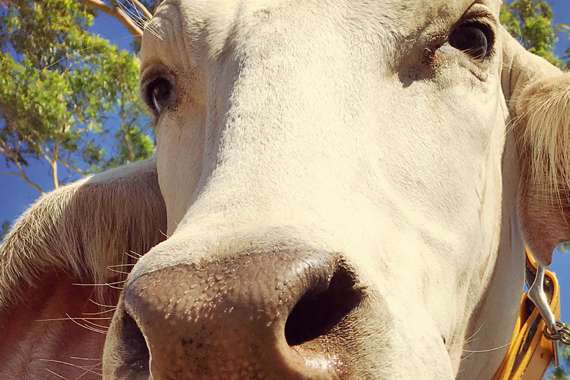GPS Tech Unlocks Fresh Fields for Stock Monitoring
Description
The use of global satellite navigation system tracking as a research tool for monitoring livestock activity is increasing across the agricultural sector, and commercial systems are being developed for the livestock industry. This project looks to improve the accuracy and function of the Satellite-Based Augmentation System (SBAS) in a range of monitoring applications.
Partners
Geoscience Australia, Australian and New Zealand Governments, Cooperative Research Centre for Spatial Information, GMV, Inmarsat and Lockheed Martin
Impact
The SBAS trial aims to improve the accuracy of GPS-tracking for livestock, from about five metres currently down to as little as 50 centimetres, while ensuring the technology is compatible with existing platforms. Strong partnerships with cattle growers mean developments will be in line with the requirements of producers in the livestock sector as they seek to invest in real-time and near-real-time GPS monitoring of behaviour and well-being on extensive properties and capitalise on new efficiencies in welfare management and proactive response.
Associate Professor Mark Trotter
It's a world-first trial of global positioning technology in the grazier's field, and CQUniversity's Satellite-Based Augmentation System (SBAS) research project aims to make locating livestock a centimetre-perfect process.
Announced in late 2017, the $14 million research is coordinated by Geoscience Australia and the Cooperative Research Centre for Spatial Information and funded by the Australian and New Zealand governments. Across several stages, researchers aim to improve the accuracy of GPS-tracking for livestock, from about five metres currently down to less than 50 centimetres.
It's a project that complements a range of research initiatives at CQUniversity's Institute for Future Farming Systems, and all of them aim to deliver big benefits for local graziers – and primary producers globally.
A member of CQUni's Precision Livestock Management Team, Associate Professor Mark Trotter specialises in developing GPS, biomass and behaviour sensors for animal monitoring. "Our animal monitoring work is essentially about providing graziers with remote measurements of where their cattle are, what they're doing, and even relating this behaviour to things like how much feed they have in the paddock," explains Assoc Prof Trotter.
Eventual improvements in global positioning, like the SBAS, will markedly improve on-animal monitoring – a technology that CQUniversity has already been analysing and finessing through several years of research projects.
Partnering with graziers across Australia, CQUniversity's trials have seen cows and sheep fitted with GPS collars or ear tags that allow remote evaluation of location, behaviour and state of individual animals – including feeding habits, water access, health and vulnerability, and social networks.
"Our research working with producers across Australia has demonstrated that there are enormous opportunities to increase efficiency and welfare outcomes for animals," says Assoc Prof Trotter. "Improving the accuracy of that data down to just centimetres will have huge implications, especially for identifying animal relationships – which bull has bred with which cow, for instance, and how well a cow might be looking after a calf or a ewe her lamb, too."
These monitoring systems are starting to be implemented on commercial properties and have already been shown to reduce on-farm labour costs, and ongoing trials aim to continue data-gathering techniques.
Dr Trotter began working with CQUniversity in 2016 after growing up and building his career in New South Wales. "I grew up on a dairy farm on the mid-north coast of NSW and have been working on the Northern Tablelands in sheep and beef, so I've been learning a lot about tropical production systems here in Central Queensland."
"There is some really significant work being done by the team here, which is being noticed by the global animal science community, and I was really keen to be a part of a team that is so focused on providing benefits to producers through precision technologies."
Connect with CQUniversity
At CQUniversity we know the value of our connections locally and around the world. Our partnerships help us create opportunities, deliver solutions and change lives. From time to time, we share our Connections Count update, where we share our highlights, including research impact stories like the ones below. Sign up to become one of our valued connections.

